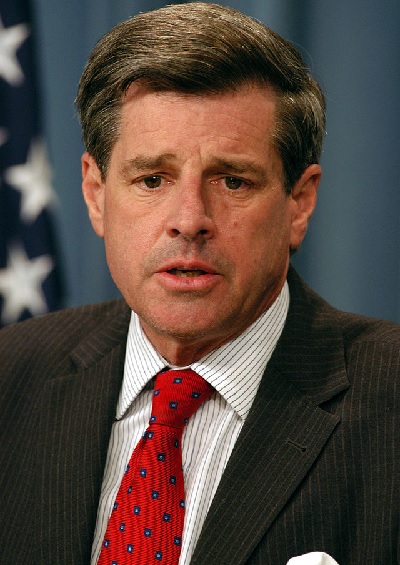Snow and Politics in Hungary
Can a freak snowstorm show a Central European nation how to get along with its neighbors?
March 22, 2013

In mid-March, quite late in the season, the severest winter storm in recent memory hit Central and Eastern Europe. In Hungary, where it was particularly severe, drifts up to 10 feet deep cut off dozens of villages from the outside world and left thousands of motorists stranded on highways.
My Hungarian-born wife and I saw it from a distance, as Facebook was lit up with forwarded status updates from stranded motorists. The country’s interior minister broadcast emergency advice and instructions by text message.
Many who ran out of gasoline sought and found warmth and refuge in the cars of complete strangers. Ordinary people ventured out of their homes with hot food to feed those who had taken refuge in schools and other public buildings.
News agencies from outside the region provided updates about stranded tour buses. There were several deaths reported, and at least one birth in a marooned car.
Along with the mobilization of Hungarian road crews and rescue teams, there was also assistance arriving from across the Austrian border. This did not make international news, but it attracted comment in Hungary.
For March 15, though it may be remembered in future as the date of the great freak storm of 2013, already has a prominent place on the Hungarian calendar: It is the anniversary of the glorious (and doomed) 1848 war of liberation, celebrated in song and story, fought against the nation’s Austrian overlords.
The irony of the old enemy’s helping hand extended and accepted on the anniversary of the conflict was not lost on Hungarians. Heavy machinery lumbered across the landscape as if in a bizarrely choreographed anniversary tribute.
Hungarian tanks were on the move to liberate stranded villages, while oversized plows and a convoy of the Austrian Red Cross crawled in formation along the M1 artery toward Budapest, rescuing stranded motorists.
Though the international news media largely missed that story, they did report on another. The March 15 anniversary was to have been the occasion of massive protests and counterprotests in Budapest, against and in support of the controversial regime of Viktor Orbán. The snow preempted those plans — and may even have averted violence.
Power in Hungary has swung like a pendulum between the left and the right over the last two decades, as disgusted voters have repeatedly rejected incumbents. The most recent election, in 2010, gave Orbán’s conservative Fidesz party a parliamentary super-majority — enough parliamentary votes to alter the constitution.
Rather than viewing the landslide as a referendum on the previous left-wing government, Orbán viewed it as a mandate and a carte blanche to make radical changes.
Fidesz has been criticized for installing partisans at every level of government and civil administration, effectively politicizing every aspect of public life. It has also aggressively centralized power in the prime minister’s office.
Fidesz and Prime Minister Orbán appear to have been largely successful in outmaneuvering and co-opting the office of the president, who is supposed to be above domestic politics and represent the whole nation, and the Constitutional Court, which is supposed to serve as a check on the government.
Fidesz rewrote the nation’s constitution shortly after coming to power, and has amended it three times since then. The most recent amendment came less than two weeks ago.
Nonplussed that the Constitutional Court was still voiding some of their policies, Fidesz amended the constitution to further neuter the court — and put the policies rejected by the court right into the language of the constitution. This amendment was the focal point of the planned March 15 demonstrations in Budapest.
There is no question that Fidesz has inherited some grave economic, fiscal and administrative problems. Bold and decisive action may indeed be called for. But many observers, both inside and outside Hungary, have become distressed at the tone and tactics of the Orbán government.
The tactics are those of a party that appears to consider itself above the rule of law. International investors are starting to become leery of doing business in a country where they can’t count on a consistent regulatory and tax environment, where the law of the land appears to have become, in the words of one political observer, a “moveable feast.”
As for the tone of the regime, it is overtly nationalistic. The new constitution defines Hungary as a “Christian” nation, implicitly marginalizing atheists and religious minorities. Anti-Semitism is correspondingly on the rise.
Ranking members of Parliament on the far right have gone so far as to call citizens of Jewish heritage, including fellow Parliamentarians, threats to national security and to advocate compiling a national register to identify and keep tabs on them.
Minority-rights watchdogs argue that the new constitution has weakened political protections, and the sensitive relationship between the Hungarian state and its significant ethnic Roma minority appears to have deteriorated in recent years.
The regime has also granted citizenship to members of the Hungarian minority populations in neighboring countries, a move that has stirred up discord and diplomatic trouble in and with those nations.
Nationalism has not always served Hungary well over the years. When Hungarians have been the oppressed underdog, nationalistic fervor has inspired some of the most heroic collective action to have graced European history — most notably, in the revolutions of 1848 against Austrian rule and 1956 against Russian domination.
On the other hand, during periods when Hungary has been master of its domain, nationalism has shown an uglier face: for example, the attempted forced assimilation of minorities at the turn of the 20th century, and the depredations of the Nazi-aligned Arrow Cross during World War II.
Viktor Orbán appears to imagine his regime in the style of the Horthy regime of the interwar years — strong leadership during a crisis. The resemblance is apt, insofar as both attempted to maintain national unity with paternalistic government policies and encouragement of fierce nationalistic pride.
But the resemblance is not entirely flattering. Miklós Horthy created the environment in which paramilitary groups like the Arrow Cross could organize and thrive despite their illegality.
Horthy’s nationalism, especially the overriding obsession with ethnic Hungarian territory outside the nation’s Trianon borders, made enemies out of neighbors. It also boxed Hungary into joining the wrong side in World War II, to its immense misfortune.
When the snow and protests threatened, Orbán cancelled his March 15 public appearances and left early to visit Brussels. Some pundits observed that though he may have escaped the snow, he would not escape political censure.
Other European leaders, following the lead of Angela Merkel, Germany’s center-right chancellor, took Orbán to task for his most recent constitutional escapades.
The peoples of Central and Eastern Europe have long memories. Hungarians nurse the memory not only of the suppressed revolutions of 1956 and 1848, but also of being overrun by Tatars in 1241 and much else in between.
Their neighbors, for their part, perennially view Hungarians as the “new kids on the block,” the invaders who uncouthly elbowed their way into the Carpathian basin in the ninth century.
These historical tensions and rivalries lurk forever under the surface. Whether they are merely points of local pride and solidarity or flashpoints of anger and conflict depends in part on the tone set by leaders.
When I first visited Hungary in the mid-1990s, I was informed that Hungarians make toasts with wine, but never with beer. Why? In 1849, when the 13 brave generals at the head of the failed Hungarian revolution were hanged, the Austrian army leaders had raised a stein of beer to celebrate.
In memory of that infamous occasion, Hungarians swore off toasting with beer. Or at least, they pledge not to toast with beer until 150 years had passed.
On several different occasions, when explaining this to me, my Hungarian friends consulted with each other over different versions of the tradition and speculated about their authenticity. Maybe, it was acknowledged, in 1998 — or 1999 — the Austrians’ symbolic penance will have been paid, and my friends would allow themselves to indulge in toasts with beer. Different versions of the tradition still persist.
The presence of Austrian snowplows on highway M1 on March 15, in its own understated way, shows that history is not destiny in this region.
Historical rivalries and resentments will never disappear from memory. Politicians may stir up and exploit nationalistic feeling. But at any given moment, it is possible for a nation to choose to let bygones be bygones — and to build collective memories of inter-ethnic generosity and appreciation to balance the resentments.
Takeaways
The Orbán government's tactics are those of a party that appears to consider itself above the rule of law.
Hungary's best hope to check the excesses of the government may come from abroad, via the democracy-enhancing power of finance.
In the future, March 15 may be remembered in Hungary as the date of the great freak storm of 2013.
March 15 already figures prominently on the Hungarian calendar, as the anniversary of the 1848 war of liberation against Austrian overlords.
The irony of Austria, the old enemy, helping in the battle against the snow on the anniversary of the 1848 conflict was not lost on Hungarians.
Read previous

Mr. Bremer’s Shades of Grey
March 21, 2013
